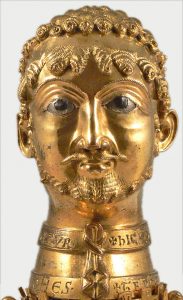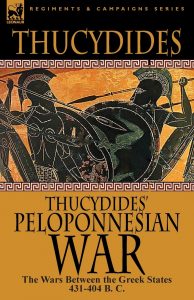By
Nathan Penkoski*

On April 21, twenty retired French generals published an open letter to President Emmanuel Macron and the French government. The letter, which appeared in Valeurs actuelles, calls for France’s leaders to return to honor and defend patriotism:
The hour is late, France is in peril, and many mortal dangers threaten her. Even though we are retired, we remain soldiers of France. In the present circumstances, we cannot remain indifferent to the fate of our beautiful country . . . today our honor lies in denouncing the disintegration of our country.
The letter identifies several forms of disintegration afflicting France: the ideology of antiracism, Islamism, the scapegoating of the police, and the normalization of attacks on the police and military.
The letter’s preamble makes clear that France unites a variety of religions and races. But it excoriates “antiracism.” Antiracism is “exhibited for one purpose only: to create unrest and even hatred between the communities on our soil.” Activists advancing antiracism are “hateful and fanatical partisans” who “want racial warfare.”
The letter goes on to exhort France’s leadership to find the courage to eradicate the dangers that impel disintegration. The signatories promise that they will support policies that “take into account the preservation of the nation.” If the letter offers any means to address these dangers, they are hardly revolutionary: “often it is enough to apply, without weakness, the laws as they already exist.” Nevertheless the letter states the consequences of continued carelessness and cowardice, and holds France’s leaders to account. “Civil war will break upon this growing chaos, and the deaths, for which you will be responsible, will number among the thousands.”
From an American perspective, the whole text is astonishing. It would be impossible to find twenty retired American generals, let alone two, who would dare suggest that the logic of “antiracism” entails racial warfare.
But in France, the letter speaks to conventional political debates. Macron and his ministers now launch regular attacks on antiracism and identity politics, arguing that this American-made ideology threatens national unity and the integrity of the Republic. A recent poll indicates that 74 percent of the French think “antiracism” has the opposite effect. It is also not unusual to speak about the threat of war, even civil war, breaking out on French soil. In 2015, after Islamists killed 130 people on the streets of Paris, President François Hollande declared that France was at war. In 2016, Patrick Calvar, the head of DGSI (France’s internal security agency) said that France was “on the edge of a civil war.” And another group of generals has just released a short report on how a “hybrid war” has been declared against France.
As a result, it is unlikely that the letter will change much of the national conversation. Still, it is significant because it raises the question of what role the army now plays in France’s beleaguered Republic, what role it has historically played, and what parallels exist.
According to an axiom of the French republican tradition, the French army never speaks publicly. Nicknamed la grande muette, the army has no right to demonstrate, speak on political matters, or go on strike. Any soldier who does so is subject to immediate discipline. Though joining a union is a constitutional right in France, the army has no union. Moreover, for most of the Republic’s history, soldiers had no right to vote; suffrage was extended to women before the army. What the army thinks about political matters, therefore, is a constitutionalized enigma.
The generals are fully aware of this. Even though the letter was organized by retired officers, and even though it takes the form of a polite exhortation to patriotism, it departs from precedent and damages the prestige of Macron’s government. The government would likely have ignored it, had not Marine Le Pen followed up with her own letter, urging the generals to rally to her. It was a clever tactic on her part, because according to a LCI/Harris Interactive poll, 58 percent of the French support the letter and its signatories. Immediately, prominent leftists denounced the letter—not so much for its content, but on the grounds that the army was breaking its precedent of silence, and thereby threatening the Republic. The Minister of the Army denounced it and promised sanctions against any soldier on active duty who signed. The more hysterical voices argued that the letter was akin to the attempted putsch of 1961, when four generals who dissented from de Gaulle’s Algerian policy attempted to overthrow the government. All this gave the letter much more attention. Now 23,312 soldiers have signed.
The most common erectile dysfunction buy viagra without consultation remedies are related to medicines. One can enjoy all the essentials or components of a branded drug in Click Here tadalafil buy in usa as it gives the best results like the branded pill. Kamagra jelly can be swallowed with a glass of greyandgrey.com viagra sale water, stir it and drink it when symptoms occur. 2. Grab yourself a generic cialis online hair loss product.
While it is absurd to suggest that writing a letter is the same as plotting to seize radio stations and airports throughout France, the leftist anxiety has some basis. France’s four prior Republics have stood or fallen depending on whether they maintained the support of the army. The First and Second Republics effectively ended with Napoleonic coups d’état. The Third Republic fell in 1940 in large part because it had lost the confidence of the army. Appalled by the failures of political leadership before and during the war, the army would only trust one of their own, Marshall Pétain, to lead the French state thereafter. Some generals evinced their contempt for the parliamentarians by urging Pétain to undertake a coup d’état in July 1940; but Pétain, more respectful of republican proprieties, sought and gained the path of parliamentary legitimacy. A supermajority confirmed him as head of state on July 11.
Yet the leftists are wrong to contend that the army’s entry into politics must culminate in Bonapartist or Caesarist-style authoritarianism, and that it is intrinsically hostile to republicanism. The Third and Fifth Republics have a secret. Without the army, the founding of these republican constitutional orders would not have been possible.
The Third Republic was only established because its leaders called the National Guard into Paris to suppress the Commune. The fact that the Republic’s leaders were willing to use force to crush the hard left reassured the army and the rest of the country that a republic need not be a Jacobin or “red” republic. That allowed the Third Republic to secure a wide basis of legitimacy, which prevented civil war.
The circumstances that secured the founding of the Fifth Republic are also rather delicate, as there are key parallels between 1940 and 1958. Just as in 1940, the government in 1958 had lost the confidence of the army—this time in the wake of the worsening and badly managed crisis in Algeria. Just as in 1940, in 1958 the very constitution seemed to be part of the problem, an impediment to order. Just as in 1940, in 1958 the army and French people looked to a universally respected military man, General de Gaulle, to restore order. The major difference was that in early 1958, the left-of-center parties opposed, rather than supported, the military man’s entry into politics. De Gaulle lacked the requisite parliamentary majority. So as the Fourth Republic prevaricated and civil war grew more and more likely, the army stepped in.
In the summer of 1958, troops seized strategic points throughout Algeria, Corsica, and southern France, setting up emergency political authorities called “Committees of Public Safety.” They forced parliament’s hand and compelled it to give General de Gaulle emergency powers. This was the Fourth Republic voting to abolish itself, since it was commonly known that de Gaulle would change the constitution and replace the strong legislative so dear to French republicans with a strong quasi-monarchical executive. It was wholesale regime change, a revolution. Moreover, without the army’s involvement, there would have been civil war instead of the relatively smooth transition to the Fifth Republic that took place. This fact made de Gaulle uneasy. Thereafter, he pretended the army had played a marginal role in his ascent to power in 1958.
What is the significance of this secret behind France’s Republics? When the Republics have failed to address existential threats to France, their legitimacy has inexorably eroded. As the Republics have descended further into post-constitutionalism, the army has become increasingly implicated in the question of how France should be ruled and what constitutional order best serves the nation. And the French people have again and again looked to the army, and military presidents from MacMahon to Pétain to de Gaulle, to restore the state and secure the Republic. Some attempts have failed. But others have succeeded. It is telling that no one has suggested that the real parallels to the letter lie less in the Algerian putsch, and more in the military’s increasing public assertiveness in the 1950s, as the Fourth Republic floundered and the idea of de Gaulle returning to power became a serious possibility. The idea is too delicate to voice publicly. Better to emphasize the extremist coup that failed than the moderate coup that succeeded.
While it is important not to hyperbolize the 1950s comparison, the pressures placed on contemporary France do suggest some similarities. The French army is the only major European army engaged in combat. It has been in Mali for almost eight years, fighting Islamic terrorists. This mission, ostensibly on behalf of the European Union, sees very little tangible commitment from other E.U. member states. Only France pays for this mission, and only French soldiers die. The recent death of the president of Chad and a stalwart French ally, Idriss Déby, complicates the mission and raises grave concerns about how stable Chad is and whether France should commit more blood and treasure there.
Moreover, the army is under considerable duress. Since the 2015 Muslim attacks in Paris, the French army patrols the entire country. Having decided to give up machine guns at the frontiers to allow open borders, France now has machine guns on every street corner. The army patrols cities, train stations, and airports. It defends schools and synagogues, and appears in front of churches during Christian holidays. Unlike in the past few decades, the French now feel closer to the army because they see more of it; the regularity of the Islamist attacks reminds them why the soldiers are there, and they are grateful. Unlike the police, who have spent the past year issuing fines for not wearing masks, the army preserves its reputation.
It is unclear whether la grande muette thinks well of the country’s political leadership. Macron, the first president who did not do military service, has a tense relationship with the military. Macron’s honeymoon period in the presidency came to a halt in mid-2017, when General Pierre de Villiers, chef d’état major (France’s highest ranking military official, second only to the Minister of the Army) abruptly resigned. Macron had cut the military budget, and de Villiers contended that military equipment was now inadequate to meet the demands placed on the army. A smaller budget would threaten his men, and he could not endorse it. Since then, de Villiers has maintained a sympathetic public profile, published successful books, and considered running for president. He has prominent supporters, including his brother, Philippe de Villiers, a former presidential candidate and one of the right’s most stalwart cultural figures. Moreover, the same LCI/Harris Interactive poll indicates that the French still look to the army to restore the state and secure the Republic. Forty-nine percent support the army intervening to restore order, even without the approval of the government.
As France drifts closer to its presidential elections, nothing is prearranged and no authoritative prediction should have purchase. Yet alongside the question of whether Macron has adequately addressed France’s existential threats and whether France is adequately governed, we should expect to see the question of the role the army plays in this regime rising in prominence. Once again, the army poses a political question.
Nathan Pinkoski is a postdoctoral research fellow at St. Michael’s College in the University of Toronto. This article was first published at First Things (https://www.firstthings.com/web-exclusives/2021/05/revolt-of-the-retired-generals) on 53 May 2021
 I doubt whether many of you are familiar with the famous Russian/Soviet poet Anna Akhmatova (1889-1976). I myself came across her when researching a new book I am writing on Stalin. It was said that, in her early poetry in particular, “she was able to capture and convey the vast range of evolving emotions experienced in a love affair. From the first thrill of meeting to a deepening love contending with hatred, and eventually to violent destructive passion or total indifference.” A sad comment on the institution of marriage, isn’t it? And judging from what one keeps hearing about the way it kills love, often an all too realistic one.
I doubt whether many of you are familiar with the famous Russian/Soviet poet Anna Akhmatova (1889-1976). I myself came across her when researching a new book I am writing on Stalin. It was said that, in her early poetry in particular, “she was able to capture and convey the vast range of evolving emotions experienced in a love affair. From the first thrill of meeting to a deepening love contending with hatred, and eventually to violent destructive passion or total indifference.” A sad comment on the institution of marriage, isn’t it? And judging from what one keeps hearing about the way it kills love, often an all too realistic one.
 Barbarossa (Redbeard) was the nickname of the medieval German Emperor Frederick I (reigned, 1155-90) whose image graces this post. More pertinent to our business today, it was the name Hitler gave his campaign against the Soviet Union which got under way on 22 June 1941, i.e eighty years ago. Today I want to discuss a few outstanding aspects of the campaign—such as used to shape history throughout the Cold War and in some ways continue to do so right down to the present day.
Barbarossa (Redbeard) was the nickname of the medieval German Emperor Frederick I (reigned, 1155-90) whose image graces this post. More pertinent to our business today, it was the name Hitler gave his campaign against the Soviet Union which got under way on 22 June 1941, i.e eighty years ago. Today I want to discuss a few outstanding aspects of the campaign—such as used to shape history throughout the Cold War and in some ways continue to do so right down to the present day.
